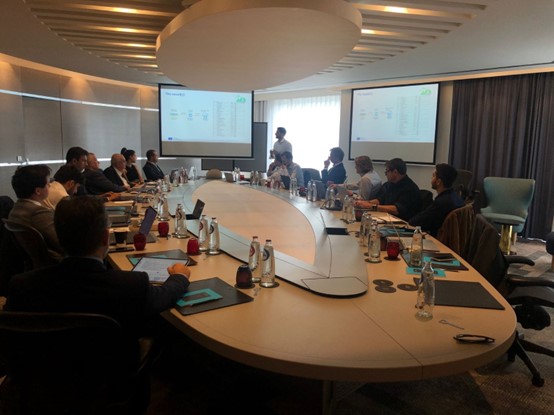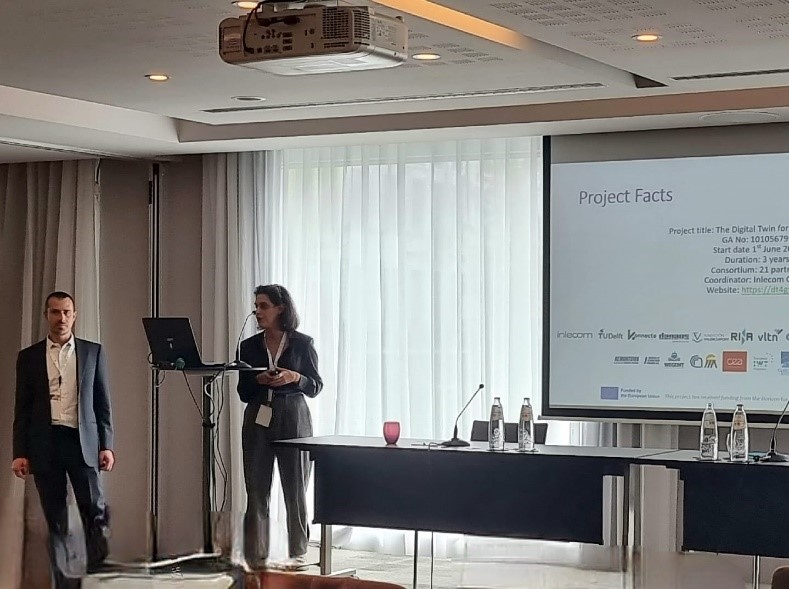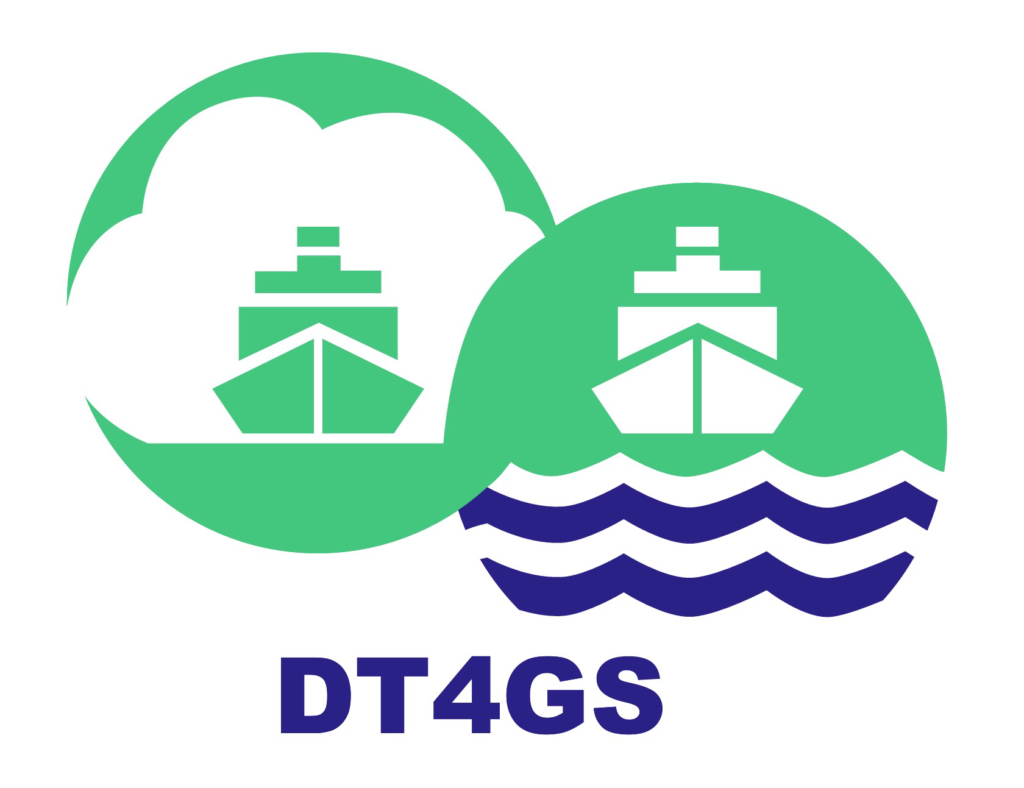Delft University of Technology is hosting the 2024 International Marine Design Conference in Amsterdam in June – Abstract submission deadline extended

Delft University of Technology, the Netherlands is hosting the 2024 International Marine Design Conference in Amsterdam in June 2024. We hope you will consider contributing to this field by submitting a paper to the conference. Don’t miss this great opportunity to showcase your work at an international stage. IMDC is to be one of the […]
DT4GS Advisory Board Meeting, 28th of September – Brussels, Belgium

The 1st DT4GS Advisory (Strategy) Board meeting with prominent actors of the waterborne industry, was held on the 28th of September, in Brussels. During the meeting, the progress of our project 4 Living Labs was presented as well as the latest implementation of the DT4GS Digital Twin platform. Moreover, the launch of the DT4GS Alliance was thoroughly discussed and the way […]
DT4GS held its 2nd workshop on 26th of September 2023

We are thrilled to announce the successful completion of the second workshop of ‘Digital Twin for Green Shipping (DT4GS)’ project, organized by INLECOM, that was held on the 26th of October in Brussels as part of the Waterborne days conference! Highlights of the workshop: Let’s continue to leverage the power of digital twins to support the transition of shipping […]
DT4GS ALLIANCE EVENT

DT4GS project will hold its 1st Advisory (Strategy) Board meeting on the 28th of September 2023 in Brussels, Sofitel Brussels Europe hotel. This event will encourage all interested stakeholders to get more insight on DT4GS developments. Register here Invitation letter below
DT4GS NEWSLETTER VOL 3. – JULY 2023

On behalf of the whole DT4GS consortium, we are happy to welcome you to the third edition of DT4GS newsletter! Happy reading! DT4GS NEWSLETTER VOL 3. – JULY 2023(CLICK HERE) DT4GS has received funding from the Horizon Europe framework programme under Grant Agreement No 101056799.

